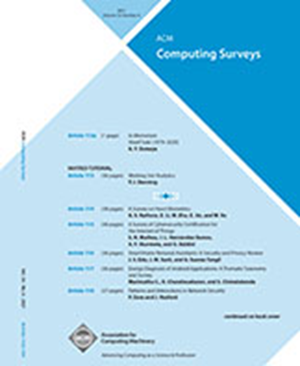基于推荐的自监督学习研究综述
IF 28
1区 计算机科学
Q1 COMPUTER SCIENCE, THEORY & METHODS
引用次数: 0
摘要
推荐系统通过提供基于个人用户偏好的个性化推荐,在解决信息过载的挑战方面发挥着至关重要的作用。深度学习技术,如rnn、gnn和Transformer架构,通过增强对用户行为和偏好的理解,极大地推动了推荐系统的进步。然而,由于数据稀疏性,监督学习方法在现实场景中遇到了挑战,导致其有效学习表征的能力受到限制。为了解决这个问题,自监督学习(SSL)技术已经成为一种解决方案,利用固有的数据结构来生成监督信号,而不依赖于标记数据。通过利用未标记的数据并提取有意义的表示,使用SSL的推荐系统即使在面临数据稀疏的情况下也可以做出准确的预测和推荐。在本文中,我们全面回顾了为推荐系统设计的自我监督学习框架,包括对170多篇论文的彻底分析。我们对九个不同的场景进行了探索,从而全面理解了不同环境下ssl增强的推荐器。对于每个领域,我们详细阐述了不同的自监督学习范式,即对比学习、生成学习和对抗学习,以便展示SSL如何在各种上下文中增强推荐系统的技术细节。我们一直在https://github.com/HKUDS/Awesome-SSLRec-Papers上维护相关的开源材料。本文章由计算机程序翻译,如有差异,请以英文原文为准。
A Comprehensive Survey on Self-Supervised Learning for Recommendation
Recommender systems play a crucial role in tackling the challenge of information overload by delivering personalized recommendations based on individual user preferences. Deep learning techniques, such as RNNs, GNNs, and Transformer architectures, have significantly propelled the advancement of recommender systems by enhancing their comprehension of user behaviors and preferences. However, supervised learning methods encounter challenges in real-life scenarios due to data sparsity, resulting in limitations in their ability to learn representations effectively. To address this, self-supervised learning (SSL) techniques have emerged as a solution, leveraging inherent data structures to generate supervision signals without relying solely on labeled data. By leveraging unlabeled data and extracting meaningful representations, recommender systems utilizing SSL can make accurate predictions and recommendations even when confronted with data sparsity. In this paper, we provide a comprehensive review of self-supervised learning frameworks designed for recommender systems, encompassing a thorough analysis of over 170 papers. We conduct an exploration of nine distinct scenarios, enabling a comprehensive understanding of SSL-enhanced recommenders in different contexts. For each domain, we elaborate on different self-supervised learning paradigms, namely contrastive learning, generative learning, and adversarial learning, so as to present technical details of how SSL enhances recommender systems in various contexts. We consistently maintain the related open-source materials at https://github.com/HKUDS/Awesome-SSLRec-Papers.
求助全文
通过发布文献求助,成功后即可免费获取论文全文。
去求助
来源期刊

ACM Computing Surveys
工程技术-计算机:理论方法
CiteScore
33.20
自引率
0.60%
发文量
372
审稿时长
12 months
期刊介绍:
ACM Computing Surveys is an academic journal that focuses on publishing surveys and tutorials on various areas of computing research and practice. The journal aims to provide comprehensive and easily understandable articles that guide readers through the literature and help them understand topics outside their specialties. In terms of impact, CSUR has a high reputation with a 2022 Impact Factor of 16.6. It is ranked 3rd out of 111 journals in the field of Computer Science Theory & Methods.
ACM Computing Surveys is indexed and abstracted in various services, including AI2 Semantic Scholar, Baidu, Clarivate/ISI: JCR, CNKI, DeepDyve, DTU, EBSCO: EDS/HOST, and IET Inspec, among others.
 求助内容:
求助内容: 应助结果提醒方式:
应助结果提醒方式:


